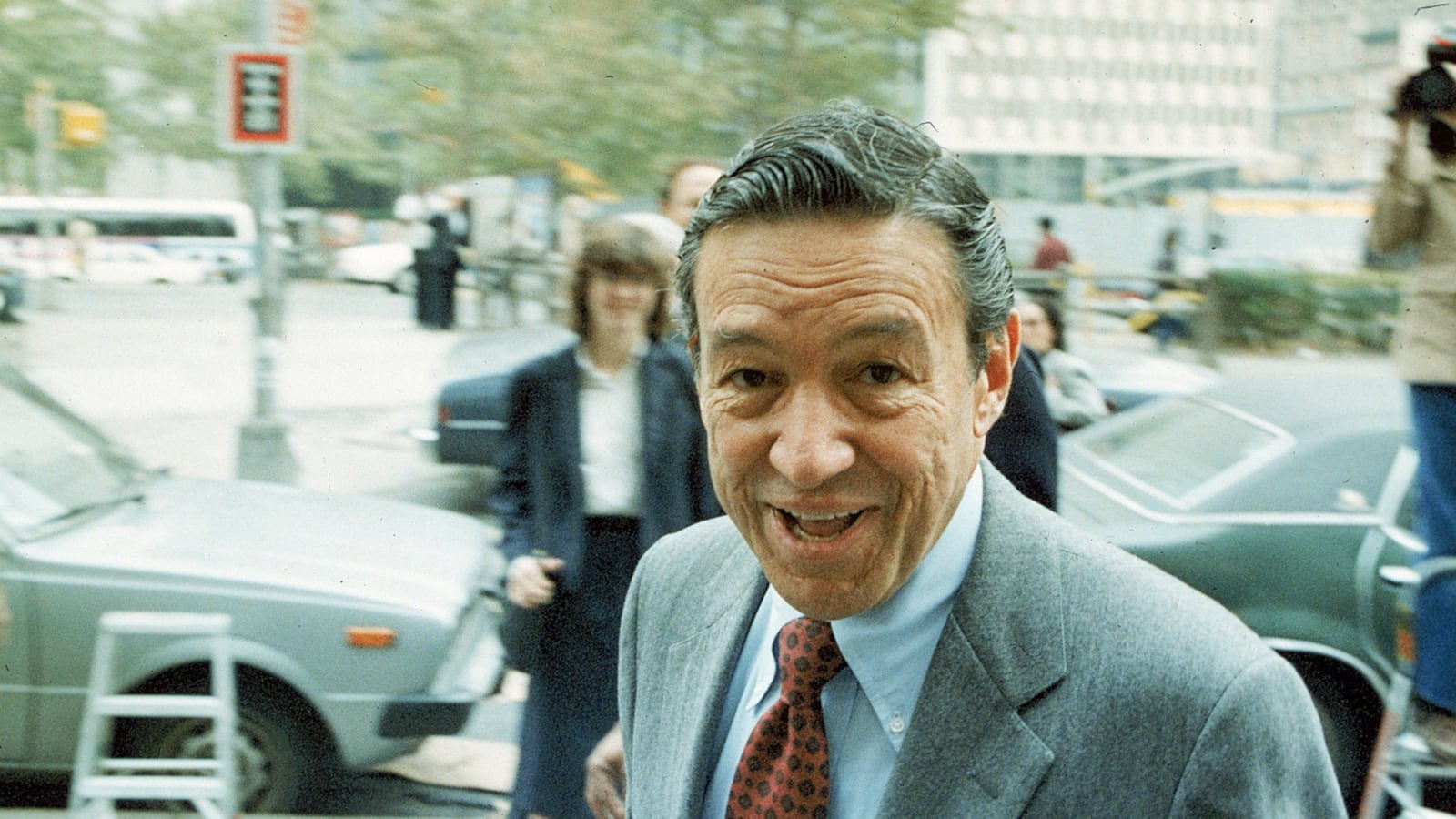Before he became a legend on 60 Minutes, Mike Wallace gained fame as a tough-guy interviewer on local television in New York. The show was Night Beat, and throughout the 1950s Wallace grilled everybody from screen stars Gloria Swanson and Dagmar to Democratic icon Adlai Stevenson and segregationist governor of Arkansas, Orval Faubus. Wallace’s subjects were as eclectic then as the man himself. Wallace had bounced around the then-fledging broadcast industry, even working briefly as a pitchman for a cigarette brand, before settling into the style that set the model for television as we know it today.
Wallace has many imitators, but he was the original take-no-prisoners broadcast journalist, and his passing at age 93 on Saturday brought out a host of tributes from a generation of newscasters who looked to him as the gold standard in a media landscape rocked by change. Wallace was known for doing prodigious research, a lost art in today’s hurried media. He never wanted to be surprised; he understood the power of a random piece of information sprung on an unsuspecting subject.
He pioneered the so-called ambush interview, where a television crew shows up in an office lobby, or parking lot, to extract a word or two, maybe just a “no comment,” or a pained expression from a reluctant subject. Wallace will forever be associated with that approach, but his true gift rested in his relentless interviewing technique. He didn’t settle for talking points, and he didn’t hide his skepticism. “Come on,” he would say when the BS got too thick.

Wallace was the first correspondent hired when CBS news producer Don Hewitt conceived of 60 Minutes in 1968. By the next decade, the show proved both a hit and a moneymaker. The marriage between Hewitt and Wallace was a match made in heaven, though they often made their subjects think they were in hell. Then as now, a call from 60 Minutes commands attention, if not fear. Wallace loved the job and hated to walk away. He yielded to the limitations of advancing age and stepped back from day-to-day responsibilities at age 88 in 2006.He didn’t advertise his politics and, when asked, said his political views were moderate. He was a lifelong friend of Nancy Reagan, and always her first choice for an interviewer when the Reagans were in the White House. Wallace was offered the job of press secretary during the Nixon administration. Whatever his sympathies might have been, he was an equal-opportunity interrogator, sparing neither side his searing questions. His son, Chris Wallace, who hosts Fox News Sunday, has carried on his father’s even-handed tradition of interviewing.
In 1996 when Wallace was still very much in the public eye, he testified before the Senate Committee on Aging to appeal for more federal funding for research into depression. He went public about his own bouts with depression, saying he had felt “lower, lower, lower than a snake’s belly.” It was an affliction that he shared with two close friends, humorist Art Buchwald and writer William Styron. It was a time when people weren’t as open about depression as they are today, and the three men, who spent time with each other in Martha’s Vineyard, bucked each other up and referred to themselves as “The Blues Brothers.”
Wallace leaves behind a huge library of interviews, many of them classics. He reduced Barbra Streisand to tears, calling her when she was still quite young “totally self-absorbed,” and wondering what she is trying to find out about herself that takes 20 years of psychoanalysis. “I’m a slow learner,” Streisand replied. In the midst of the Watergate scandal, Wallace interrogated Nixon aide John Ehrlichman, reading a bill of particulars that would eventually send him to jail. “Is there a question in there somewhere?” Ehrlichman asked.
Wallace had his share of awkward episodes. His role in squelching the testimony of a tobacco-industry whistleblower was scrutinized, and in the end he made sure the full story was aired. His reporting for a documentary, The Uncounted Enemy: A Vietnam Deception, about Gen. William C. Westmoreland‘s allegedly underestimating the strength of the Vietcong prompted Westmoreland to sue for libel. Wallace blamed the lengthy legal proceedings and highly publicized trial that followed for sending him to the hospital with depression. “Imagine sitting day after day in the courtroom hearing yourself called every vile name imaginable,” he said. Westmoreland and his wife sent Wallace flowers and eventually dropped the suit.
For all the ups and downs, Wallace never lost his love of the game, returning in 2007 to interview presidential aspirant Mitt Romney and Jack Kevorkian, the assisted-suicide physician known as “Dr. Death.” He had once said that he would retire only “when my toes turn up” and that “they’re just beginning to curl a trifle.”
With a career that spanned 60 years, Wallace’s toes and everything else stood up very well.





